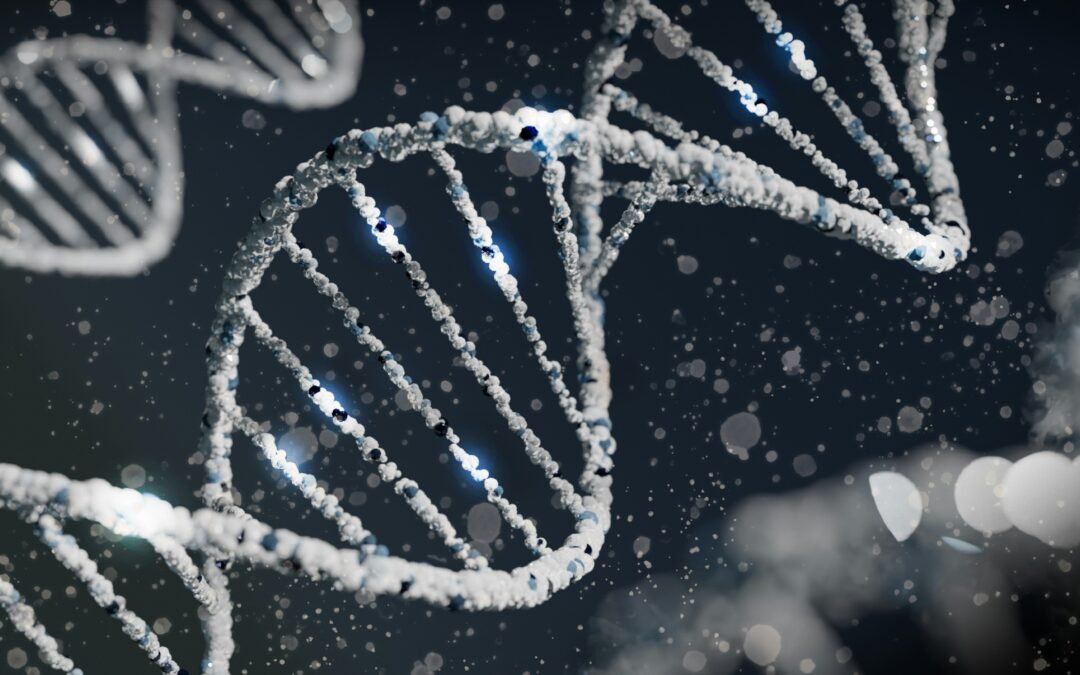What is Sperm DNA Fragmentation?
Sperm DNA fragmentation is a condition in which the genetic material within sperm is damaged or broken. This can occur during the process of sperm formation or storage, leading to potential issues with fertility and reproductive health. The integrity of sperm DNA is crucial for successful fertilization and embryo development, so any damage to this genetic material can impact a couple’s chances of conceiving.
What are the symptoms of sperm DNA fragmentation?
Symptoms of sperm DNA fragmentation may not be readily apparent, as it is a microscopic issue that can only be detected through specialized testing. However, couples who have been trying to conceive without success for an extended period of time may opt to undergo fertility testing, which could reveal issues related to sperm DNA fragmentation.
How prevalent is sperm DNA fragmentation?
Research indicates that sperm DNA fragmentation is relatively common, with studies suggesting that up to 8-30% of men seeking fertility treatment may have elevated levels of DNA damage in their sperm. This prevalence may vary depending on factors such as age, lifestyle habits, and underlying health conditions.
What causes sperm DNA fragmentation?
The causes of sperm DNA fragmentation can be multifaceted, ranging from genetic factors and age-related changes to lifestyle choices and environmental exposures. Oxidative stress, which occurs when the body’s antioxidant defences are overwhelmed by reactive oxygen species, is a common contributor to DNA damage in sperm.
How does sperm DNA fragmentation affect pregnancy outcomes?
When sperm DNA fragmentation is present, it can have a significant impact on pregnancy outcomes. Research has shown that high levels of DNA damage in sperm are associated with decreased fertilization rates, lower embryo quality, increased risk of miscarriage, and reduced likelihood of successful pregnancy. Therefore, addressing this issue can be crucial for couples struggling with infertility.
What does testing for sperm DNA fragmentation involve?
Testing for sperm DNA fragmentation typically involves collecting a sperm sample and analyzing it using specialized laboratory techniques. This may include the use of DNA fragmentation assays, such as the sperm chromatin structure assay (SCSA) or the terminal deoxynucleotidyl transferase dUTP nick end labeling (TUNEL) assay, to measure the extent of DNA damage in the sperm.
How long do the sperm DNA fragmentation tests results take?
The results of a sperm DNA fragmentation test can usually be obtained within a few days to a week, depending on the specific testing method used and the laboratory’s processing times. These results can help healthcare providers determine the best course of action for couples experiencing fertility issues.
Who should have a sperm DNA fragmentation test?
Individuals who should consider undergoing a sperm DNA fragmentation test include men with a history of infertility, recurrent pregnancy loss, or failed assisted reproductive technology (ART) cycles. Additionally, men who have lifestyle habits known to contribute to DNA damage, such as smoking, excessive alcohol consumption, or exposure to environmental toxins, may benefit from testing.
Can sperm DNA fragmentation be corrected?
In some cases, sperm DNA fragmentation may be corrected or improved through lifestyle modifications, such as adopting a healthier diet, reducing exposure to environmental toxins, and taking antioxidant supplements. In more severe cases, treatment options such as sperm selection techniques or assisted reproductive technologies like intrauterine insemination (IUI) or in vitro fertilization (IVF) may be recommended.
Despite the challenges posed by sperm DNA fragmentation, many men with this condition can still father children of their own. By working closely with their healthcare providers to address this issue and explore appropriate treatment options, men can overcome fertility obstacles and ultimately achieve their goal of starting a family.
DNA fragmentation is an important variable in male fertility. Testing should be considered before trying to conceive or prior to starting IVF treatment as a means to discount any issues that might be present or simply to provide reassurance before any procedure. Remember DNA fragmentation will have a cause therefore it is imperative that you consult with an Andrologist to identify and understand the core issue(s) behind the diagnosis.
For more information about sperm DNA fragmentation, contact andrew@theifc.world.
IVF clinics, best IVF clinic, IVF in England, best IVF center, ivf center, what is icsi, IVF, egg donation, sperm donation, artificial insemination, IVF treatment, IVF procedure, IVF clinics, fertility clinic, fertility, infertility treatment, assisted reproductive technology, egg retrieval, embryo transfer, IVF success rates, fertility specialist, IVF cost, male infertility, female infertility, IVF process, preimplantation genetic testing, frozen embryo transfer, IVF alternatives, borrowed eggs, embryologists, group fertility, gynecological care, diagnostic testing, egg donation, ivf egg donation, medicinal stimulation, assisted reproduction, genetic diagnosis, preimplantation genetic diagnosis, ovarian stimulation
IVF clinics, best IVF clinic, IVF in England, best IVF center, ivf center, what is icsi, IVF, egg donation, sperm donation, artificial insemination, IVF treatment, IVF procedure, IVF clinics, fertility clinic, fertility, infertility treatment, assisted reproductive technology, egg retrieval, embryo transfer, IVF success rates, fertility specialist, IVF cost, male infertility, female infertility, IVF process, preimplantation genetic testing, frozen embryo transfer, IVF alternatives, borrowed eggs, embryologists, group fertility, gynecological care, diagnostic testing, egg donation, ivf egg donation, medicinal stimulation, assisted reproduction, genetic diagnosis, preimplantation genetic diagnosis, ovarian stimulation
IVF clinics, best IVF clinic, surrogacy in Argentina, IVF in England, best IVF center, ivf center, what is icsi, IVF, egg donation, sperm donation, artificial insemination, IVF treatment, IVF procedure, IVF clinics, fertility clinic, fertility, infertility treatment, assisted reproductive technology, egg retrieval, embryo transfer, IVF success rates, fertility specialist, IVF cost, male infertility, female infertility, IVF process, preimplantation genetic testing, frozen embryo transfer, IVF alternatives, borrowed eggs, embryologists, group fertility, gynecological care, diagnostic testing, egg donation, ivf egg donation, medicinal stimulation, assisted reproduction, genetic diagnosis, preimplantation genetic diagnosis, ovarian stimulation
IVF clinics, best IVF clinic, IVF in England, best IVF center, ivf center, what is icsi, IVF, egg donation, sperm donation, artificial insemination, IVF treatment, IVF procedure, IVF clinics, fertility clinic, fertility, infertility treatment, assisted reproductive technology, egg retrieval,
embryo transfer, IVF success rates, fertility specialist, IVF cost, male
infertility, female infertility, IVF process, preimplantation genetic testing, frozen embryo transfer, IVF alternatives, borrowed eggs, embryologists, group fertility, gynecological care, diagnostic testing, egg donation, ivf egg donation, medicinal stimulation, assisted reproduction, genetic diagnosis, preimplantation genetic diagnosis, ovarian stimulation






